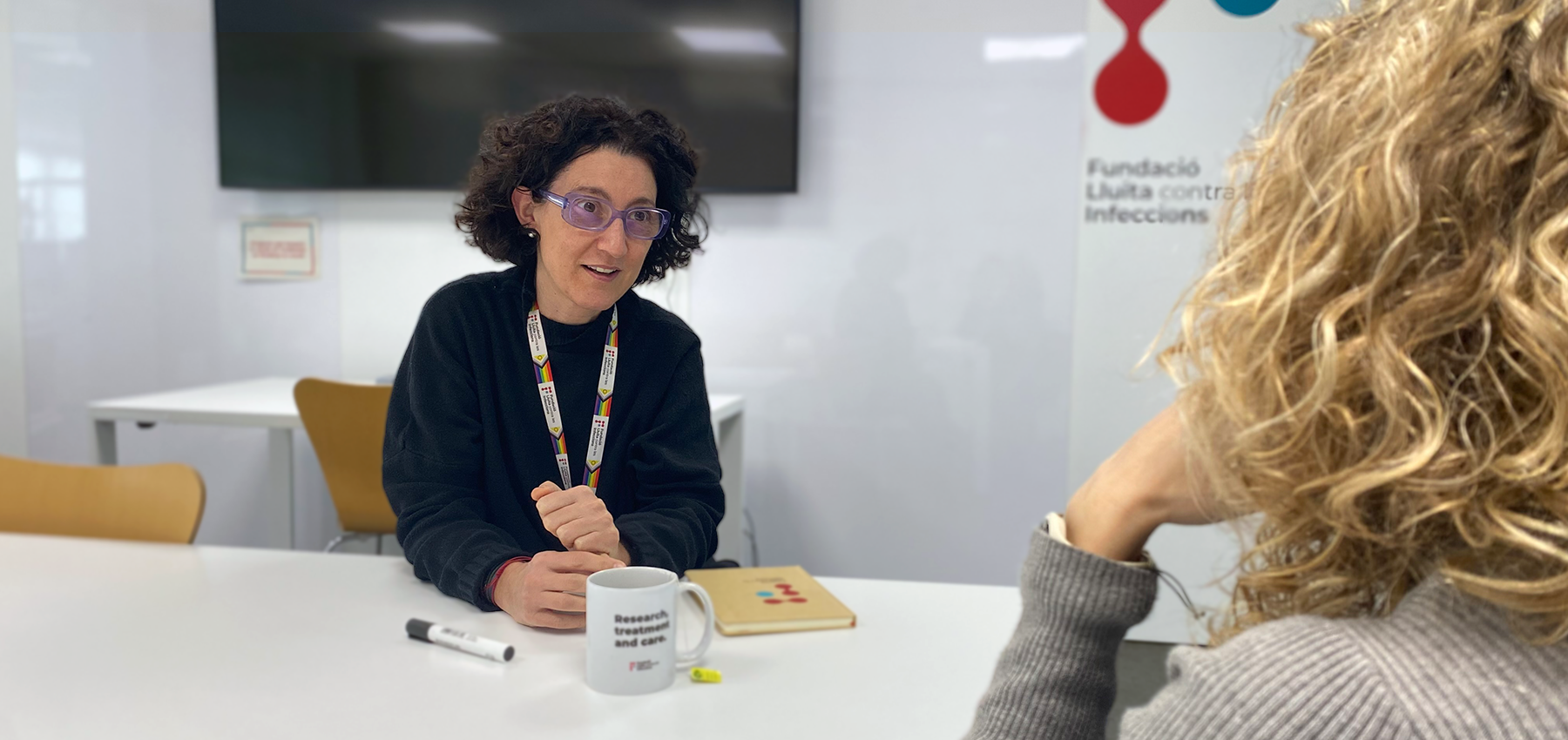We have been certified according to the ISO 9001 standard for 18 years, which demonstrates our commitment to a quality standard
01/02/2024
This February marks 18 years since the Fundació Lluita contra les Infecions has been certified by ISO 9001, which indicates the organization’s commitment to quality and excellence in all its processes. To celebrate that this year we have been satisfactorily recertified, with no non-conformities in the last audit, we are interviewing Deborah París, head of Quality and Talent at the Foundation.
Could you briefly explain to us what ISO 9001 consists of?
ISO 9001 is an international regulation that establishes the requirements to carry out a quality management system. We could say that in our case the main objectives would include:
– Adequately manage the risks of the company, which implies commitment on the part of management.
– Work for continuous improvement (we are monitored throughout the year).
– Guarantee user/patient satisfaction.
– Focus on the establishment of processes (strategic, operational and support) through procedures, protocols and codified documentation.
How many years has the Foundation had this ISO certification?
Since February 2006. It’s already been 18 years!
What are the advantages of the Foundation having ISO 9001?
It is a “tangible” demonstration of the Foundation’s commitment to quality and gives us prestige, which is always good! I would highlight the following aspects:
– It forces us to have a well-studied context of the organization, with documents that we review annually: SWOT, risk analysis, definition of interested parties…
– Motivates us in continuous improvement, facing annual audits.
– We focus on excellence: we make quality reports, we carry out a half-yearly monitoring of strategic indicators and annual quality objectives…
– We ensure the monitoring of procedures and protocols that we have standardized in all areas of the company (assistance, research, purchases, communication, teaching, satisfaction, systems, talent…).
How does this regulation apply to the Foundation’s work processes? Could you give us a specific example?
It’s as easy as having all our processes documented, updated and audited. In other words, do what we wrote that we would do and leave a record of it.
If we take the specific case of the experience of a worker at the Foundation, from where to offboarding, we should follow the following protocol:
– Once it has been decided that it is necessary to incorporate someone, we will take the procedures and make the publication according to the agreed format, we will manage the phases of the process on our platform and he will sign a pre-contract that we have codified.
– When this person signs the contract with the management, they will also receive the quality policy, the job description, as well as the documentation of the processing of their data.
– Once the professional has already joined, he will receive the welcome manual and merchandising, the equality plan, the procedures and protocols that apply to him and will participate in the initial training by our internal staff.
– During his stay at the Foundation, this person will have the option of making incidents, participating in internal training courses and evaluating them, conducting surveys to assess the working climate, etc.
– Finally, at the moment of farewell, all the guidelines to be followed will be checked and another survey will be filled out to evaluate your stay with us.
So, it is nothing more than doing what we have been instructed to do and leaving everything well documented, because we have to take into account that an auditor will not tell you how to do the work, but he will audit that what what you said you would do, always do.
Having zero non-conformities is very important. How do you rate it?
It depends on how you look at it… Let’s see, that in an audit they tell you that they don’t have anything that you did “wrong”, it’s nice. It is recognition for the work done and we celebrate it. In any case, a non-conformity is not serious either, it is a call to attention for something specific. It’s a gift they give us to keep improving. Sometimes it’s good to be knocked down, we should never believe that we are the best.
How is the effectiveness of the quality management system measured at the Foundation?
With various indicators, because we think that anything can be measured:
– Quality objectives (around 5/6 per year).
– Process indicators of the Strategic Plan (about 45 that are repeated annually and we have the traceability).
– Audits (2 years).
– Number of internal incidents (we have around 100 a year).
– Patient complaints (suggestions box or OAC).
– Surveys and evaluations linked to all interested parties (staff, patients, suppliers, laboratories, course attendees…)..
Anything else worth noting?
It may not sound like a cliché, but it must be said that maintaining this certification and with very few non-conformities is thanks to the work that everyone does. The Foundation is an orchestra and the audience, on this occasion are the auditors. Violins, cellos, piano, transoms… not only must they sound good, they must also be coordinated. If one musician goes out of tune and alters the other… someone in the audience might leave and give us a non-conformity. If the Liceu stands up, it applauds us all.

Share